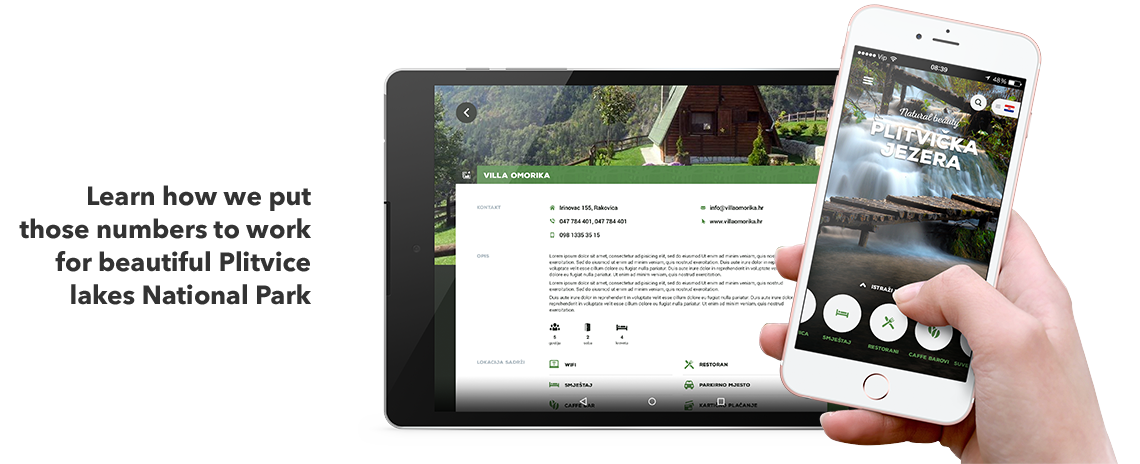How can mobile travel apps boost bookings and revenue
If somebody knows how bookings are important, it’s Croatia – the country where both of our offices are located. Tourism holds the country together and helps patch up the cracked national budget. Everyone relies on it, but we’re far from the comfort zone. The industry is fast changing: local sunshine-and-sea value proposition had to be redefined to help compete with the ever-stronger competition. In circumstances like this, mobile travel apps are a great way to offer more and earn more. Here is six reasons why.
1. Tourism industry is information-oriented
Today’s customer wants a unique and tailored experience – not a travel sold in bulks with traditional push strategies. Offering a superb experience depends on having the ability to offer the right service at the right time. Gulbahar and Yildirim claim that tourism industry is known as information oriented and one of the top areas in this sense and it is adapting these new social media channel and technological communication tools.
If you fail in offering relevant information to the customer, they will not be satisfied nor will they spend as much as they may have planned. This is why it’s vital to have a channel where the flow of information to the customer will be constant and two-way, unlike traditional channels which did not have customization possibilities nor could they provide precious feedback. Carefully planned and crafted travel apps are just the right fit for the times ahead.
2. Mobile bookings are skyrocketing
According to Criteo, mobile accounts for most of the overall growth in travel bookings since 2014. The share of mobile bookings has almost doubled! It increased from 12 to 23% worldwide between Q2 2014 and Q2 2015. Moreover, Deutsche Bank Securities estimate that mobile hotel bookings worldwide will triple by 2020.
In-app advertising and proper tracking are increasingly becoming must-haves for travel advertisers. That’s because the in-app bookings make 49% of all mobile bookings in the air and hotel subcategories, which indicates that apps are a strong source of revenue and must include such options. In addition to that, travel apps have the advantage of working 24-7 and being accessible from every internet-covered location. This enables the customer to make a booking wherever and whenever they want to, thus improving the experience.

3. More data, better decision making
Apps are also a great way to get to know your customers better – plan which data is vital for you and how are you going to analyze it up front. This goes much further than simply integrating Google Analytics to your iOS or Android app – it means that each call-to-action and form has to be set up so that you gain precious information which will direct your business tactics. Although your development team will design the logical structure of your CMS, it is up to you or your digital marketers to make sure those data is collected and analyzed so that it supports and fuels your market analysis efforts.
Big data is no longer the ‘next big thing’. Big data has already proven to be a strong tool in the hands of digital marketers which eliminates competition who lack the strategy to collect it. Tourism industry is especially intolerant to lags in decision-making process, as the customer has strict time limits for consumption and therefore a decision not taken equals lost revenue.
4. Travel apps help bring out advocates
Fred Reichheld states in his book “The Ultimate Question: Driving Good Profits and True Growth” that a 12% increase in brand advocacy generates, on average, a 2x increase in revenue growth rate. The social proof that an advocate may bring is a strong promotional tool that is essential to nourish in times when tourist are primarily looking for a great experience. Remember, tourists want to tell stories about their vacation. Now, you can almost hear those Jerry Maguires shouting “help me help you”. So, why not?

5. Better retention rates
Customer capital is everything in tourism. Your business’ worth is in the discounted income you’ll gain from your customer during their lifetime: that’s the concept of customer lifetime value (CLV). You may either increase the value of your business by extracting a larger share of wallet for each customer or by having greater retention rates – by bringing the customer back.
However, don’t get all too excited by the prospect of mobile apps too early. KISSmetrics Blog points out that 90% of people who download your app are gone within 6 months, unless they’re offered a constant value. This may be achieved through: regular app updates, offering valuable content or special promotions for next season, reminding them of their visit with push notifications and so on.
6. Behaviour-based triggers increase engagement
While standardized channels make it hard and/or expensive to recognize whether the user would like to engage more or send out feedback. But mobile apps offer a wide range of possibilities which might increase revenue easily by sending out right information in the right time. Imagine you had the opportunity to send out restaurant suggestions for dinner the morning earlier or info about tour guides available in the area according to the device language.
To select the right triggers, it is advisable to model the user persona first and then actively adjust the triggers according to the results in order to achieve the best outcomes. This process is ongoing, but may yield powerful results as it affects the customer behaviour by directing them directly to the point of sale.
Conclusion
There are strong reasons which make travel apps a must for serious destination marketing, travel or hotel chain marketing. The evidence in support for such a claim will only get stronger as the smartphone penetration and usage rises, alongside sharp worldwide mobile bookings increase and the rise of social networks influence. Vital elements for proper utilisation of tourism apps are careful planning, user persona modelling, channel integration, regular updates and providing constant value.






